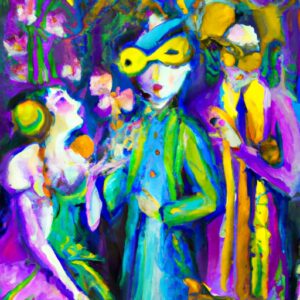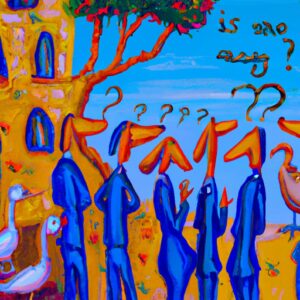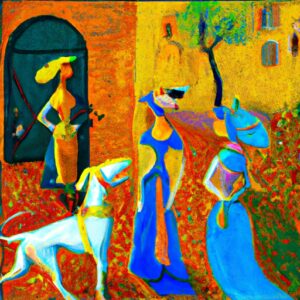Non sapevo che + subjunctive
Here we are again with the subjunctive.
You can check the previous lessons if you need to review something about the congiuntivo presente and the congiuntivo passato.
Let’s have a look at some examples for you to understand what we mean:
Oh ciao! Non sapevo che fosti a casa.
Oh hi! I didn’t know you were home.
Lucia non sapeva che tu fossi italiano.
Lucia didn’t know you were Italian.
What is the structure of non sapevo che + subjunctive?
If we want to say we didn’t know about something, we use the following structure: Non + sapere in imperfect indicative + che + subject + verb in imperfect subjunctive.
As you can see, there’s a parallelism between the first and the second verb.
If we use the verb sapere in the imperfetto, it makes sense to use the second verb in the imperfetto too.
However, the second imperfetto is a congiuntivo, since one of the purposes of the congiuntivo is to express doubts or uncertainties.
By the way, here’s the conjugation of the verb sapere in the indicativo imperfetto in case you don’t remember:
| Io | sapevo |
| Tu | sapevi |
| Lei / Lui | sapeva |
| Noi | sapevamo |
| Voi | sapevate |
| Loro | sapevano |
Non sapevo che + congiuntivo: examples
Before we have a look at some more examples, let’s concentrate on just one:
Non sapevo che facessi sport!
I didn’t know you did sports!
In this sentence, the person who’s talking didn’t know in the past the other person used to practice sports in the present, but now they do know.
As you can see in the translation, it’s the same in English.
We wouldn’t say “I didn’t know you do sport!” because it just sounds weird.
We use the past (did) even if we’re talking about the present.
Now that you know this, you’re ready to look at other examples:
Non sapevo che Maria e Paolo stessero insieme.
I didn’t know Maria and Paolo were together.
Non sapevamo che volesse cambiare casa.
We didn’t know she wanted to move house.
Non sapevano che foste amici.
They didn’t know you were friends.
Non sapevo che stessi così male.
I didn’t know you were feeling so bad.
Non sapevo che + indicativo imperfetto is correct?
You will probably hear Italians using the indicativo imperfetto instead of the congiuntivo imperfetto.
This is because the congiuntivo can be difficult to conjugate even for Italians, which means you don’t have to worry if you make mistakes when you’re still learning.
For example, instead of sentence A, many Italians might say sentence B:
A: Non sapevano che foste amici.
B: Non sapevano che eravate amici.
This is because, in spoken Italian, it is accepted to use the indicativo imperfetto after non sapevo che.
However, in theory, it is incorrect, so if you’re writing a formal text, like an essay, make sure to use the congiuntivo.



















